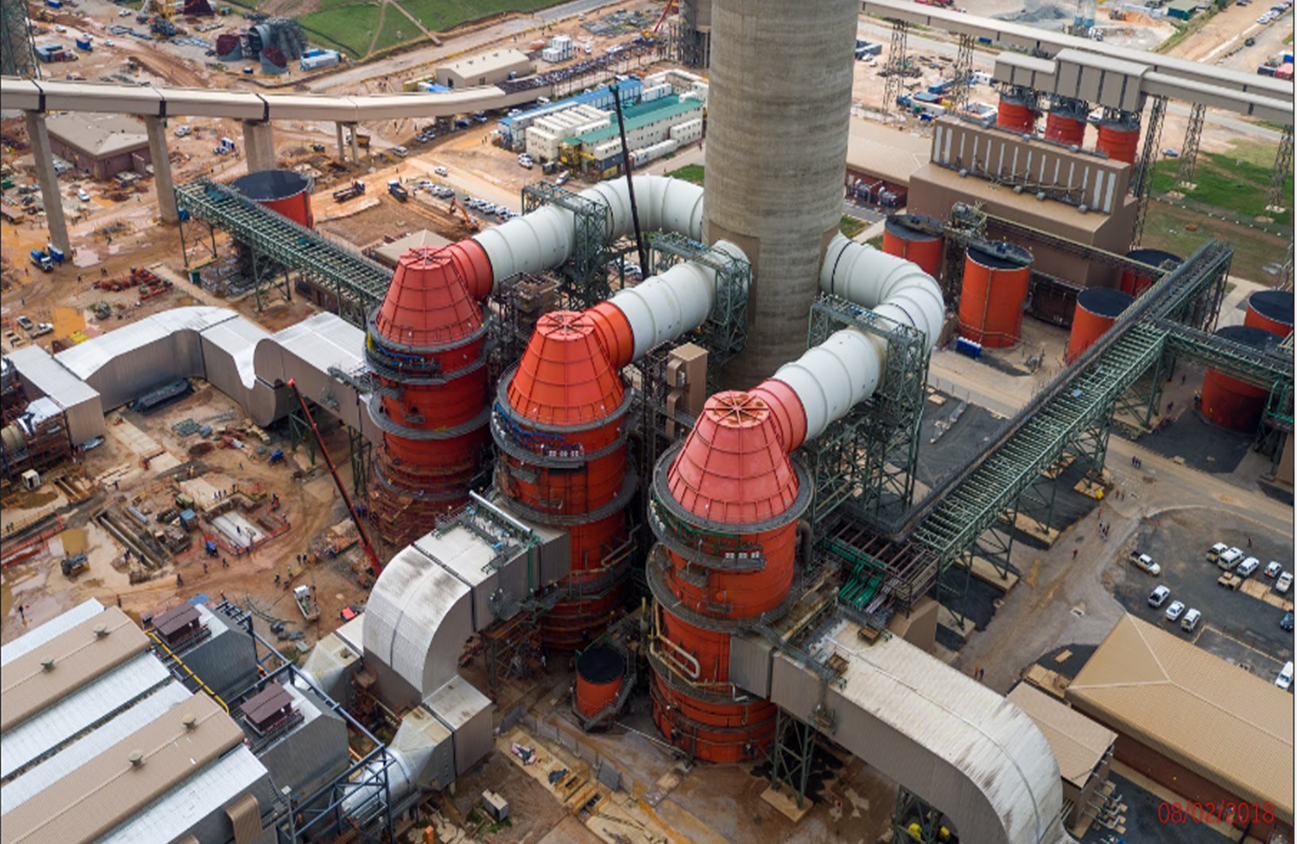- While Eskom was granted permission to ignore minimum emissions standards, it’s still working hard to bring Kusile Power Plant’s Flue Gas Desulphurisation plants back online.
- Repairs are progressing well and the utility expects the pollution filters to be operational by the end of 2024.
- Eskom says it has ramped up safety measures to protect the communities surrounding Kusile Power Plant.
By December repairs to Kusile Power Station’s Flue Gas Desulphurisation plant should be complete. This is according to Eskom which provided an update to these repairs on Tuesday morning.
The Flue Gas Desulphurisation plant is a vital piece of the Kusile Power Plant. Without it, the power plant would eject Sulphur dioxide (SO2) and other dangerous gases into the atmosphere. When this plant collapsed in 2022, Kusile quickly began repairs but while the desulphurisation tech was being repaired, the power plant sat silent, removing over 2000MW from the national grid.
#Eskom #MediaStatement
— Eskom Hld SOC Ltd (@Eskom_SA) March 5, 2024
Eskom provides update on the use of temporary stacks at Kusile Power Station; emission levels and ambient air quality remain within acceptable limits pic.twitter.com/Wr3EM2EuDO
To bring the power plant online faster, Eskom applied for a postponement regarding meeting Minimum Emissions Standards. This postponement was granted in June 2023 by the Department of Forestry, Fisheries and the Environment with several stipulations Eskom was required to adhere to. Come 31st March 2025, Eskom will have to abide by those emissions standards.
As such, the utility says that repairs to the desulphurization plant at Kusile are coming along nicely and by December 2024, the repairs to the ducts leading to the permanent stack should be complete.
However, while those repairs are happening, Kusile is pumping tons of pollutants into the air. To that end, Eskom has had to implement safety measures to ensure local residents aren’t adversely harmed by Kusile’s emissions.
“We have implemented robust health screening initiatives within the surrounding areas and have installed additional ambient quality monitoring equipment to specifically monitor SO2 emissions,” group executive for generation at Eskom, Bheki Nxumalo said in a statement.
“This ensures that we safely and responsibly operate Kusile while minimising any potential impact on public health. We remain committed to Zero Harm, which is one of our core business values. We also remain dedicated to achieving a sustainable energy supply for the country,” Nxumalo added.
We sincerely hope that Eskom is taking this matter seriously as South Africa has a history of leaving those who are exposed to dangerous conditions that affect their health to fend for themselves.
For example, too many miners in South Africa suffer from silicosis, a condition that causes fibrosis of the lungs following inhalation of silica dust. Individuals suffering from silicosis are often left to fight mining firms alone. These firms have seemingly infinite funds and legal teams that would outnumber most villages in South Africa. With these resources, poor miners are often outmatched and big mining companies often don’t have to pay any sort of compensation.
One class action lawsuit in 2021 saw mining companies paying a R5 billion settlement to miners who contracted silicosis or tuberculosis from 1965 to 2021. That was great news but considering that the likes of AngloGold Ashanti reported gross profit of $1.02 billion in 2023, a figure of R5 billion is a drop in the bucket.
Regarding Eskom and Kusile, SO2 exposure can cause lung and heart disease. Even short term exposure to the gas can increase the risk of death. While the utility says it is monitoring air quality, the South African Weather Service reported last year that power cuts hamper its ability to monitor air quality. Let’s hope Eskom has considered that.

